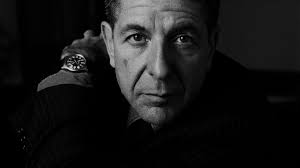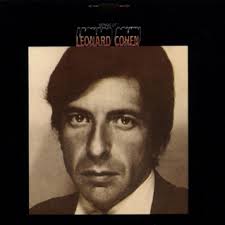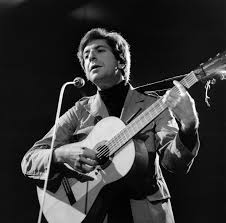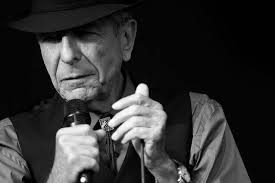As Canada stands in silence, with her collective head bowed in respect, gratitude, sorrow and remembrance of the fallen on this eleventh day of the eleventh month in 2016, we also bow our heads in remembrance of one of this country’s great artists.
Leonard Cohen — who died November 7 in his 83rd year — embodied the heart and soul of Canada like few other artists, making him not only admired but revered, not only legendary but iconic. An Anglophone born and raised in Francophone Montreal to Jewish parents, he was a creative visionary who unified English and French; Jewish, Catholic and Protestant; indigenous spiritually and Zen Buddhism; poetry and song; literature and pop music, parochialism and internationalism; materialism and art.
Modest, gracious and polite unless bullied, he understood ritual and ceremony which were bred in the bone. So we remember his life and his art on a day of solemn, purposeful occasion caught in the complex web of human emotion, which he plumbed so steadfastly, uncompromisingly and eloquently with his art.
Typical of an artist who was as comfortable with prophesy as he was with visionary imagination, Cohen recently talked openly about his approaching death in a New Yorker magazine feature written by David Remnick. Similarly his last album You Want It Darker, released three weeks before his death, is a provocative obsession with mortality and death. Still, no amount of forewarning lessens the shock or diminishes the sorrow.
Songs of Leonard Cohen, his first of 14 albums released since 1967, was the first album I ever purchased. His debut poetry collection Let Us Compare Mythologies was the first poetry collection I ever purchased, followed closely thereafter by The Spice-Box of Earth, Flowers for Hitler and Parasites of Heaven. (It still pains me to recall I lost all three first editions in a house fire in 1990.)
I was 15 years old when I was introduced to Cohen by my Grade 10 English teacher Larry McGuire. This sounds mundane enough, but it was miraculous under the circumstances. I went to H.B. Beal, a commercial/technical high school in London, Ontario. My segregated class consisted of plumbers, auto mechanics and draughtsmen who had no time for the literary arts.
Although I shared my classmates’ contempt for literature, at least outwardly, I was lacerated by the knife of poetry — thanks to a gifted teacher — which has remained an open, festering wound ever since, for which I remain deeply grateful. I read Cohen’s pair of novels The Favourite Game and Beautiful Losers before I set foot in Trent University in 1972, where I subsequently majored in English literature.
I had a close encounter with Cohen in the late 1960s. I was a bellhop at The Hotel London, working the weekend overnight shift while still in high school. Cohen was staying at the hotel. Before closing time he had ordered a bottle of wine from room service. I took it up to the room booked in his name — it was a bottle of Mateus, which for years remained for me emblematic of romantic sophistication. My memory is unreliable, but I’m sure the person who accepted the wine was not Cohen, but one of his guests.
In three decades of newspaper work as an arts reporter I never had the opportunity of interviewing Cohen. But I was grateful for the privilege of reviewing two concerts at Centre in the Square. I also wrote advances based on a lifetime of reading, listening, studying and reflecting on the artist. Bird on a Wire is one of a fistful of songs I have played on guitar for 50 years.
On this sad day I would like to share some of what I wrote about an artist who fed passions — literature and music — that have shaped, enriched and enlarged my life. As such, this is equal parts tribute, appreciation and prayer of remembrance and thanksgiving.
Since 1966 when Judy Collins encouraged him to perform his own music, Cohen toured internationally. By the time I saw him, he was a consummate professional who embraced audiences which, in turn, embraced him. It was an act of mutual love I rarely experienced writing about the arts for daily newspapers. It confirmed for me the elemental and transformative power of music to open hearts, minds and souls. It was a sacred, spiritual experience.
The world is a less beautiful, less holy place with the passing of Leonard Cohen. Thank God we have his artistic legacy to guide us as we negotiate this perilous voyage on which we are embarked — I mean this literally.
I’d like to start by recalling (in edited form) his second, and last, concert at Centre in the Square in June 2008:
Leonard Cohen took Berlin — for the second time.
Kitchener hasn’t been called Berlin since 1916. But that historical fact didn’t diminish the adoration he received from the sell-out crowd at Centre in the Square. Nor did it diminish the deep gratitude he extended to his adoring fans.
For Cohen’s loss has been our gain. It’s highly unlikely he would be touring were it not for a former manager, an ex-lover, bilking him out of millions of dollars of retirement savings. But touring the world is exactly what the celebrated poet-novelist-singer/songwriter is doing on the heels of being inducted into the Rock ‘n’ Roll Hall of Fame.
Cohen last appeared at the Centre in 1993. He remembered the previous visit. ‘It’s been 15 years since I last stood on this stage,’ he recalled with customary self-deprecating humour. ‘I was 60 then, just a kid with a crazy dream.’
Despite the playfully ironic line in The Tower of Song of being ‘born with the gift of a golden voice,’ Cohen has never claimed to be a great vocalist. Still, his bedroom rumble has served his lyrics exceptionally well. He sounded as good as he did 15 years ago.
Although he had three terrific backup female singers in longtime musical collaborator Sharon Robinson and the ‘sublime Webb sisters’ (Charley and Hattie), not to mention a sextet of superb musicians, his voice remained front and centre. He didn’t so much sing as caress lyrics in a unique pop benediction and his clear ecumenical diction ensured you heard every word.
When he sang he often bent over slightly, as if drawing the words from somewhere deep within. And, when he wasn’t singing, he gently sashayed like a proud grandfather at his granddaughter’s wedding.
Notwithstanding his voice, he has built his performing career on two essential qualities.
First is charisma. The term is overused in casual conversation. But Cohen has the real thing, a compelling attractiveness or charm that inspires devotion in others. Nattily attired in a dark, double-breasted suit, blue dress shirt sans tie, topped with fedora, he looked like he just stepped out of a 1940s romantic comedy. He epitomized debonair.
But his charisma is not the result of fashion, sex appeal or even force of personality — though he has these in spades. Rather, it’s a form of grace, a gift with appeal that transcends mere attractiveness. After each song, and in response to thunderous applause and regular standing ovations, the Monk of Rock offered his beaming, crooked grin, with his hand over his heart in a gesture of humility and gratitude.
Second is language. Whether writing poetry, prose or song, Cohen has remained a poet. W.B. Yeats has been called the Last Romantic Poet. But Cohen deserves the title. His best songs have the allure of poetry — compelling, engaging, haunting. Melody, while often memorable, remains secondary to lyric. His use of imagery and metaphor is unsurpassed in popular song. His language is so rich and so evocative, it’s impossible to select specific examples.
His songs ranged over his career, extending back to the 1960s with a fresh Bird on a Wire, Who By Fire, I’ve Tried to Leave, and the forever haunting Suzanne. Cohen’s unique style of fingerpicking is often overlooked and it was wonderful seeing him play guitar for these and a couple of other songs. Most of the material, however, was drawn from the 1980s and ’90s including a number of songs he co-wrote with Robinson, who contributed several duets and solos.
Cohen is celebrated for his songs from what he refers to as the Book of Love. And, indeed, love — secular and religious, profane and sacred, material and spiritual, flesh and soul — is a major theme, as was evident in such songs as The End of Love, Ain’t No Cure for Love, My Secret Life, The Gypsy’s Wife and A Thousand Kisses.
But he has also been one of the very best political songwriters over the last quarter century as was confirmed by Democracy, The Future and Anthem. Similarly, while acknowledged as the poet of melancholy, his wry humour shone through in many songs including The Tower of Song and I’m Your Man.
Cohen did a short first set, longer second set and returned for three encores, so the concert ended up featuring 25 songs over three hours, minus intermission. His songbook brims with enough exceptional material to fill three concert programs. So, there were undoubtedly fans who left the Centre without hearing personal favourites.
But nobody left disappointed. He delivered a superb concert. He ended by singing, ‘here’s a man still working for your smile.’ He worked not only for smiles, but for tears of joy. ‘It was a privilege and honour to play for you,’ he concluded. ‘I hope I can come back someday.’
A couple of month’s before the concert, when tickets went on sale, the following advance was published in The Record (again, in edited form):
It took longer than it did for Elton John to sell out the Kitchener Auditorium. Nonetheless, Leonard Cohen sold out his concert at the Centre in the Square in less than four hours.
The Tower of Song last took Kitchener — formerly known as Berlin — in 1993. The 73-year-old artist, who divides his time between Montreal and California, was a dashing 58 at the time.
Cohen announced his most recent tour following his induction into the Rock ‘n’ Roll Hall of Fame earlier this month. He rarely performs, so the forthcoming tour may well be the last opportunity for fans to see him live.
Since publishing Let Us Compare Mythologies in 1956, Cohen has inspired generations of writers and musicians with poems, novels and songs that blend spiritual and sexual yearning with melancholic angst. Influenced by an earlier generation of Montreal poets including Scott, Smith, Klein and especially his mentor Layton, he was part of the generation of the writers (along with Laurence, Atwood, Munro, Purdy, Birney, Richler and Davies) to emerge around the country’s centenary and establish Canadian writing as a viable national literature.
Similarly, he was at the vanguard of acoustic musicians who in the late 1960s and early ’70s made the transition from folksinger to singer-songwriter. He released Songs of Leonard Cohen in 1967, which marked the beginning of the gradual transition from poet to pop singer — at least in terms of celebrity.
More recently, Cohen attracted headlines after spending five years in a Buddhist monastery on Mt. Baldy, in California, only to learn that his manager, an ex-lover, had bilked him out of millions of dollars of retirement savings. Despite his financial woes, all the publicity wasn’t so embarrassing.
Last year a documentary tribute, Leonard Cohen: I’m Your Man, made the rounds of selected movie theatres across Canada and aired on CBC TV. There was also publication of Book of Longing, a collection of poems, prose and drawings. It was his first book since Stranger Music: Selected Poems and Songs in 1993.
At the time Cohen made no bones about recouping his financial losses through publication of the book. It’s a safe assumption his latest international tour will feather his retirement nest a little more comfortably.
The first time I saw, not to mention reviewed, Cohen in concert was in June 1993 when he was touring in support of The Future. Here are my observations (in edited form):
First we take Manhattan…
then we take Berlin
Leonard Cohen took Berlin – by storm. Kitchener, of course, hasn’t been called Berlin since 1916. But that historical fact is incidental to the way the legendary Montrealer took possession of the close-to-capacity crowd at Centre in the Square.
In a word, the 58-year-old poet-novelist-singer/songwriter was magnificent. It’s impossible to imagine a performer launching a national tour with more class, style and verve.
After a rousing standing ovation through three encores, the gracious troubadour left the crowd on its feet, still clapping for more. Twenty-four songs over three hours, with a brief intermission, wasn’t enough.
Dressed in a dapper black polo shirt inside a dark charcoal suit, the Juno hall-of-famer presented songs spanning more than a quarter of a century, from Suzanne and Sisters of Mercy (as haunting and as beautiful as ever), to the apocalyptic musings of The Future and Democracy. Interestingly, he sang a new version of Bird on a Wire, cleverly reclaiming it from mushy pop cover-dom.
Watching Cohen perform his lyrical and prophetic songs, laced with sexual, Biblical, political and topical references, I was left with a sense of the great English visionary poet William Blake being reincarnated in the guise of an aging lounge singer who bears a cross between Irving Berlin and Tom Waits.
Reading reviews of Cohen’s latest recording The Future, which promises to be his biggest hit album yet, one might think he just emerged from obscurity. But tracing his songs from Avalanche and Joan of Arc (from Songs of Love and Hate), through First We Take Manhattan and Tower of Song (from I’m Your Man), it’s clear Cohen has had his eye on the apocalypse for some time.
Although his recent political songs have received most of the attention, the survey of songs he presented in concert confirms Cohen as his generation’s superb romantic balladeer. From Suzanne and Chelsea Hotel #2, through Ain’t No Cure for Love and I’m Your Man, to Waiting for a Miracle, nobody in any musical genre writes about love (both sacred and profane) with as much insight, sensitivity, tenderness, toughness, wit and passion.
A good deal has been made of the bleakness of The Future, but Cohen’s dark prophetic vision is lightened by a wry, sardonic, self-deprecating humour that comes from living life to the brim — and surviving with his dignity in tact. His grace is hard-won.
The irony of his riding the crest of a great wave of popularity as he approaches 60 is not lost on the man who has reimagined himself many times and remains his own best creation. His sense of humour was abundantly evident through his introductions, most of which consisted of lines lifted from songs.
Whether accompanying himself on electric guitar and electric piano (one-hand tinkering really) or with his superb sextet and two back-up singers (Julie Christensen and Perla Batalla), Cohen remained in command every minute of the way — even when he relayed the score of the first period of the Stanley Cup final between this hometown Montreal Canadiens and L.A. Kings.
Cohen, who has always had a refined sense of self-drama, has learned from theatre that whispering catches the ear better than screaming. His singing (which garnered him a 1993 Juno for Male Vocalist of the Year) has never been conventional, and the sensual rhythmical monotone of his youth has given way to a raspy bass, reminiscent of single malt and cigarettes, which is as much oratorical and liturgical as musical.
For, when all is said, even acknowledging his gift for melody, it’s his way with words that makes Cohen’s music and performances so engaging, compelling and memorable. Following in the tradition of medieval troubadours, Cohen remains a poet who sings rather than a singer who writes poetry.
The following advance was published a few days before his concert(again in edited form):
Leonard Cohen’s first book was a thin volume of poetry called Let Us Compare Mythologies. Published when the Montreal artist was still a teenager, the title of the 1956 collection is an apt description of Cohen’s mercurial career, which has gracefully bridged the mythologies of literature and pop culture; Judaism, Protestantism, Catholicism and Zen Buddhism; hedonism and discipline; sexuality and death.
Beginning as a poet and troubadour, continuing as a novelist with The Favourite Game and Beautiful Losers, and ending as a pop music icon, his latest incarnation is of an aging lounge singer with an eye on the apocalypse. Riding the crest of renewed popularity with the release of his first recording in four years, he brings his visionary musings to Centre in the Square.
Cohen was rescued from pop irrelevancy in 1986 when Jennifer Warnes, one of Cohen’s former back-up vocalists, released Famous Blue Raincoat, a brilliant collection of his songs. This alone, however, would not have restored Cohen’s pop musical career. Two years after the release of the collection of cover tunes, Cohen released I’m Your Man, an evocative collection of sardonic tunes delivered in a raspy voice that affectionately mocks his preferred medium of artistic expression.
Building on the momentum fuelled by the 1991 tribute recording I’m Your Fan, Cohen has released his strongest recording since his self-titled debut album and his sophomore album Songs From a Room. Featuring the 58-year-old singer/songwriter in the guise of an Old Testament prophet, The Future is a mature meditation on the state of the world by an artist whose vision (whether tragic or comic) and facility with language have seldom betrayed his art.
Cohen is taking all the attention, including a recent cover profile in Saturday Night magazine and a Juno Award for Male Vocalist of the Year, with a bemused sense of humour as gentle as it is wry. In a recent interview, for instance, he compared the careers of Bob Dylan and himself to that of Picasso and Matisse, the two towering figures in modern art. ‘Dylan’s achievement is so monumental. He was the Picasso. I’m the Matisse.’ Not a bad comparison, but his punchline is pure Cohen. ‘I love Matisse, but I’m in awe of Picasso.’
While Dylan’s career has undergone a rejuvenation of sorts recently, it’s nothing to match that of Cohen’s. In addition to the new release, his sexy video of the country flavoured Closing Time is receiving regular airplay on MuchMusic and his current tour promises to be a sell-out. Meanwhile, publishers are lining up to reactivate his long out-of-print catalogue and a new collection of verse is slated to appear next year.
Looking back over his artistic career spanning six decades, it’s clear we needed Leonard Cohen more than he needed us. Consequently, we are obliged to honour his legacy with publication of his Complete Poetry as soon as possible. Then we need a boxed set of his Complete Songs, accompanied by publication of a complete songbook.
Rest in Peace, dear Leonard — a prophet in the wilderness of modernity who knelt and prayed at the altar of high art for the benefit of us all.
Below Leonard Cohen’s official video presentation of Hallelujah:





